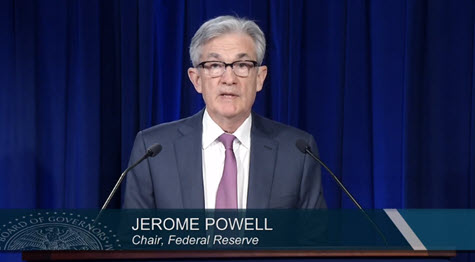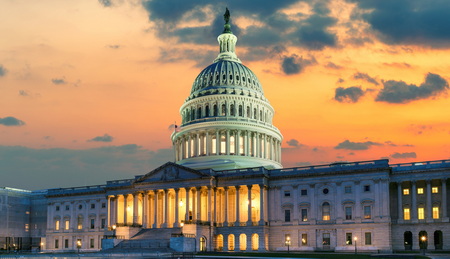
President Donald Trump signed four executive orders (EOs) on August 8 that seek to counter the negative economic repercussions of the pandemic by preventing residential evictions and foreclosures; providing additional unemployment payments; and deferring the collection of payroll taxes and student-loan payments.
- The EOs were signed after White House officials and Democratic leadership could not agree on a fourth comprehensive coronavirus aid package. (Roundtable Weekly, Aug. 7) Republicans and Democrats urged each other this week to continue negotiations. (Wall Street Journal, Aug 10.)
- Whether the president has the authority to issue some of these Executive Orders is questionable, since taxing and spending power is generally under the purview of Congress. (NPR, Aug. 8) President Trump’s four executive orders include:
Assistance to Renters and Homeowners
This order calls upon several federal agency heads to take steps within their existing authorities and programs to minimize evictions and foreclosures. These efforts would apply only to federally originated, backed, or securitized mortgages.
- The order does not purport to reauthorize the CARES Act federal eviction moratorium that expired at the end of July. (Wall Street Journal, July 16)
- The EO instructs the Secretary of the Treasury, the Secretary of Housing and Urban Development (HUD) and the Director of the Federal Housing Finance Agency (FHFA) to take all lawful measures to prevent evictions and foreclosures of residential tenants and owners who have been financially impacted by the pandemic.
- The HUD Secretary is also instructed to encourage and provide assistance to landlords, public housing authorities, federal grant recipients and affordable housing owners to minimize evictions and foreclosures.
- Roundtable President and CEO Jeffrey DeBoer commented on federal rental assistance efforts: “Seeking to optimize existing programs and resources to minimize evictions and foreclosures makes sense. For example, the existing Section 8 housing choice voucher program successfully provides housing assistance to lower income tenants.”
- DeBoer continued, “However, millions of additional families have pre-qualified for rental assistance yet are on stand-by wait lists for Section 8 housing vouchers and therefore do not receive the assistance for which they qualify. HUD should work quickly to reduce what are, in many cases, multi-year Section 8 housing assistance wait times.”
- The residential relief EO complements a series of FHFA guidance for lenders and servicers since the start of the pandemic, collected on the agency’s “COVID-19 Information and Resources” website. For example, FHFA announced on August 6 that multifamily owners with mortgages backed by Fannie Mae or Freddie Mac who enter into forbearance agreements must inform tenants in writing about eviction protections.
- FHFA Director Mark Calabria, below right, addressed his agency’s oversight of Fannie and Freddie, which own or guarantee $5.6 trillion in single and multifamily mortgages, during The Roundtable’s January 2020 State of the Industry Meeting in a discussion with Roundtable Member Willy Walker, chairman & CEO, Walker & Dunlop, left.

Unemployment Payments
Weekly federal unemployment payments of $600 that were authorized in the CARES Act expired on July 31.
- This order directs a $400 weekly payment to those unemployed due to the pandemic through December 6, 2020 – or whenever $44 billion from the Department of Homeland Security’s Disaster Relief Fund is depleted to $25 billion.
- The benefit would be funded 75% by the federal government and 25% by states, who are encouraged – but not required – to provide their share of $100 per week. Several governors this week insisted their states do not have the funds budgeted for the proposed allocation. (Roll Call, Aug. 10)
- A senior Labor Department official said the additional $300 weekly federal share would likely take weeks to reach the unemployed and could run out six weeks after initial disbursement. (Wall Street Journal, Aug. 12)
Deferring Payroll Tax Obligations
This order directs the Treasury Department to defer the withholding, deposit, and payment of the employee-share of payroll taxes for Sept. 1, 2020 through Dec. 31, 2020 – essentially suspending the 6.2% Social Security tax on wages for employees making less than about $104,000 annually on a pre-tax basis. (Brownstein Hyatt Farber Shreck EO Summary, August 12)
- The president said that if he is reelected, he will work to turn the temporary deferral into a permanent tax cut while also seeking to reduce the payroll tax going forward. (Washington Post, Aug. 8) Treasury Secretary Mnuchin later clarified that the payroll tax deferral would be optional for employers and not mandatory. (Forbes, Aug. 12).

- The CARES Act previously authorized businesses to defer the employer-share of payroll taxes until the end of the 2020. (Click to enlarge image above )
- The executive action on payroll taxes, along with recent comments by President Trump in support of a capital gains tax cut, has renewed speculation that the President could act to reduce capital gains taxes administratively by directing Treasury to allow taxpayers to adjust the basis of assets for inflation when measuring gain. (MarketWatch, Aug. 12)
Deferring Student Loan Payments
- Student loan payment relief granted under the CARES Act expires on Sept. 30, 2020. This EO instructs the Secretary of Education to pause monthly payments and interest for student loan borrowers until Dec. 31.
September 30th Funding Deadline
- Most policymakers have left Washington for the August recess, but senators and House members will receive a 24-hour notice to return if a coronavirus deal is reached or if a vote is scheduled. Both chambers are scheduled to return on September, and no votes are scheduled until the week of September 14 – just weeks before government funding is scheduled to expire on September 30.
- Referring to the executive orders signed by President Trump, DeBoer states in the article, “The presidential executive orders are positive measures, but they are not a full substitute for legislation. Legislation that builds on the short-term relief enacted this spring is sorely needed.”
DeBoer also notes, “Congress will face even greater relief needs when they return in September, but at the same time politics will make negotiations even more difficult.” (Bisnow, August 14)
# # #















